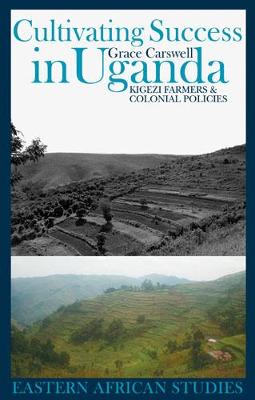Eastern African Studies
1 total work
Kigezi, a district in southwestern Uganda, is exceptional in many ways. In contrast to many other parts of the colonial world, this district did not adopt cash crops. Soil conservation practices were successfully adopted, and the region maintained a remarkably developed and individualized land market from the early colonial period. Grace Carswell presents a comprehensive study of livelihoods in Kigezi. Following the lead of groundbreaking studies by Tiffen, Fairhead, and Leach, her case study confirms recent research suggesting that the usual assumptions about population pressure, environment, and long-term land-use change need to be questioned. Her findings are particularly exciting for all those involved in the ongoing key debates in natural resource management, development studies, and environmental history.
